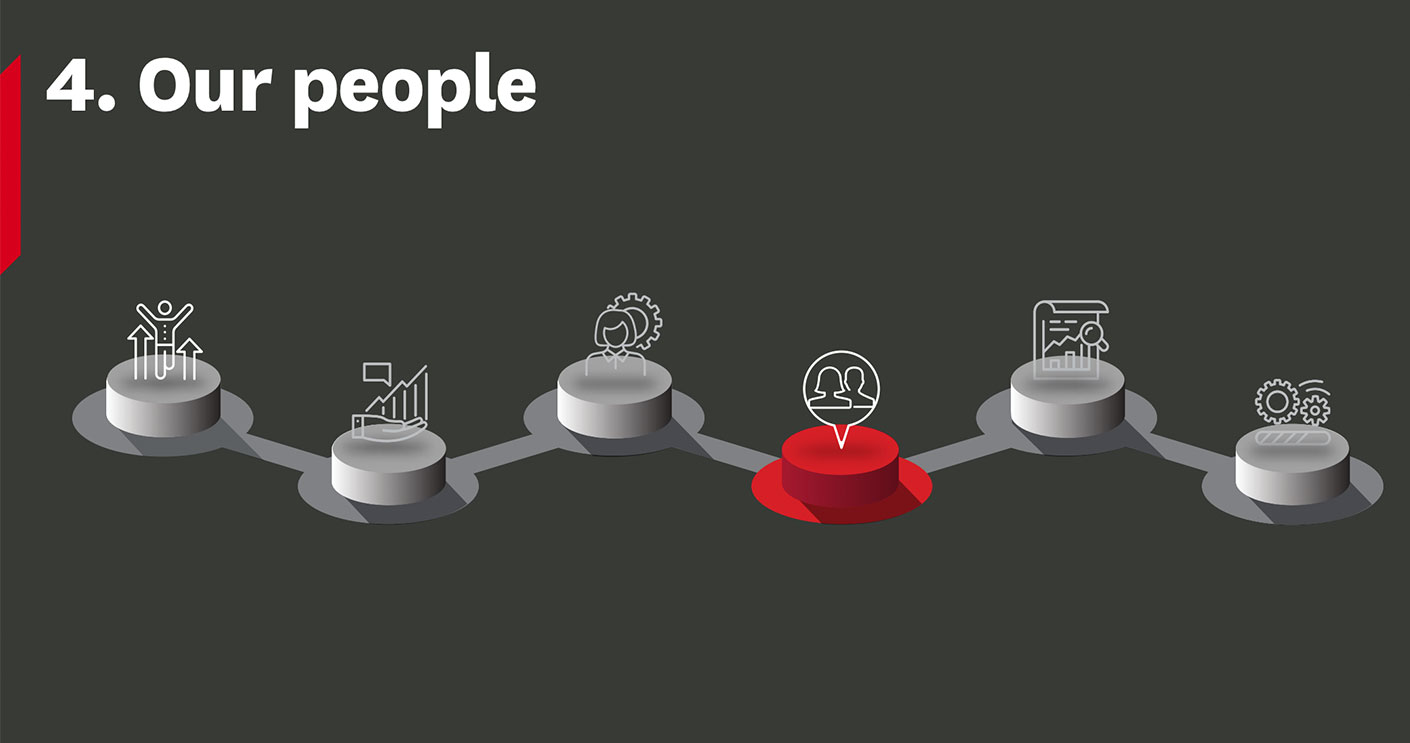Nicole Gower, Vice-President of People and Services, and Professor Patrick McNeil, Deputy Vice-Chancellor (Medicine and Health) are Co-Chairs of the Our People work stream of the University’s Operating Plan. Here they provide an update on the Future of Work project.
The Future of Work project was initiated in response to the impacts of COVID on our working arrangements and the need to understand how the University can learn from this period, and embed positive flexible work practices and virtual capabilities in our working modes.
The Centre for Workforce Futures from the Macquarie Business School was commissioned to run the project. The project was completed by a research team from October 2020 to May 2021 and included a comprehensive literature review, as well as a survey and focus groups with Macquarie staff.
The research project explored the following themes:
- Working arrangements (including flexibility, productivity and working conditions)
- Locations of work (including blended/hybrid modes, working from home or working from anywhere)
- Modes of collaboration, communication and consultation
- Technology
- WHS considerations (including physical safety and mental health support).
Following receipt of the report by the Our People Program Board, we have considered the findings and next steps, which we share with you today.
Key findings
The report concludes that remote working and blended modes of work are inevitable in the Australian workforce and are attractive to Macquarie staff. While there are many benefits associated with greater flexibility and remote or blended working, there are factors that need to be considered to maximise the benefits of flexible working for both the University and staff. Some of these factors are summarised below:
- Consistency of implementation and equitable access to remote working across different areas of the University.
- Trust and reciprocity between managers and staff to enable productive and constructive remote working arrangements.
- Manager capability in managing remote/hybrid teams (including managers valuing WFH and understanding its benefits, which may require a culture shift in some teams).
- Resourcing and training (including access to technology, IT support for remote working, technological literacy of our staff, cyber security and data protection).
- Health and safety considerations when working from home (including physical safety and mental health support).
- Increased productivity vs work intensification and decreased boundaries between home and work.
- Shift from ‘managing attendance’ to outcomes-based model of work.
- Understanding different needs and diversity and inclusion considerations (not a one- size-fits-all approach).
Next steps
The findings reinforce what we all know – that we have a profound opportunity to reshape the way we might work in the future, based on our experiences over the past 18 months. While there are many challenges associated with COVID it has, in a very short time, propelled us forward in challenging traditional work modalities. The report also confirms the complex nature of this reshaping, and that there is no simple answer or single way forward.
We see engagement and involvement of our staff in this work as essential. As the level of staff participation in this initial study was relatively modest, we would now like to provide an opportunity for all staff to have input and will be inviting further engagement on the issue. But we also recognise that in the current lockdown context, staff are grappling with many competing priorities and that now is not ideal timing for this consultation. In collaboration with the Our People Program Board, we will be developing a mode of engagement with staff. We look forward to hearing your views and suggestions at that time.
Our goal is to develop a framework and resources, with relevant policies, training, capabilities and supporting tools – going beyond the topic of remote working, to cover broader aspects of flexibility and work modalities to fully realise the opportunity before us.
For those who are interested in reading the full report, it is available here. Our thanks and appreciation to the Centre for Workplace Futures for their partnership with the University on this project.
Professor Patrick McNeil and Nicole Gower
Co-Chairs, Our People Program Board


 Back to homepage
Back to homepage